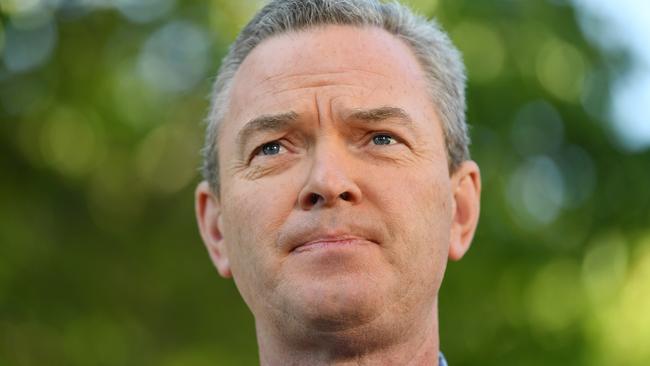Another reason some MPS might be calling it quits before the election
There are a lot of reasons MPs are deciding to call it quits before the election. This could be one of them.
National
Don't miss out on the headlines from National. Followed categories will be added to My News.
COMMENT
There is a super reason why a clutch of ministers is heading for the door before the election expected in May.
It’s about their finances in civilian life and the possibility of around $70,000-a-year disappearing. Defence Minister Christopher Pyne and Defence Industries Minister
Steve Ciobo have announced they will stand down before the poll.
Former Foreign Minister Julie Bishop and indigenous Affairs Minister Senator Nigel Scullion already have said they will not contest the election.
All four are among a shrinking number of MPs who are eligible for the cushy defined benefit superannuation scheme because they were first elected before 2004.
They could be eligible to more than $200,000 a year for life. That might just be the start were, for example, Mr Ciobo to use his experience as a former trade minister to wrangle a top paying job advising a company.

Not all decamping front benchers are so lucky. Kelly O’Dwyer, another exiting cabinet minister, came into parliament in 2007 while her ministerial colleague Michael Keenan was elected in 2004.
Those who came after 2004 have a contributory scheme like most other workers. There would be a number of reasons why the ministers don’t want to be re-elected. But the prospect of a Coalition defeat would loom in their thinking, and with that the consequences for their superannuation.
A shift into Opposition would mean a cut in salary and a lower retirement benefit. For example, Ms Bishop as Foreign Minister earned about $370,00 a year. Under the defined scheme her taxable super would be about $220,000 a year. And that would be on top of anything she might earn in the private sector.
Her salary would be cut by as much as $100,000 should the Coalition lose the election and she stayed in parliament as a shadow minister. The base salary of a back bencher is $207,000.
And her superannuation benefit were she to retire at the 2022 election would drop accordingly — to around $160,000. That’s a difference of some $70,000 a year.
The defined scheme was scrapped in 2004 after a campaign claiming it was too generous by then Labor leader Mark Latham —- who nevertheless qualified for and accepted it when he left parliament.

MPs elected before 2004 can retire on 60 per cent of the average salary of the previous three years, and ministers earn a lot more than back benchers.
After this election just six senators will qualify for the defined benefit scheme: Labor’s Kim Carr, Gavin Marshall and Penny Wong, and Liberals Eric Abetz, Marise Payne and Mitch Fifield.
In the 151-seat House of Representatives just 16 will qualify, assuming they are re-elected. They are Labor’s Warren Snowdon, Anthony Albanese, Maria Vamvakinou, Joel Fitzgibbon, Tanya Plibersek, Catherine King, Brendan O’Connr and Anthony Byrne.
The Liberals are Warren Entsch, Kevin Andrews, Tony Abbott, Tony Smith, Sussan Ley, Peter Dutton, Greg Hunt. Plus cross bencher Bob Katter.
Originally published as Another reason some MPS might be calling it quits before the election



